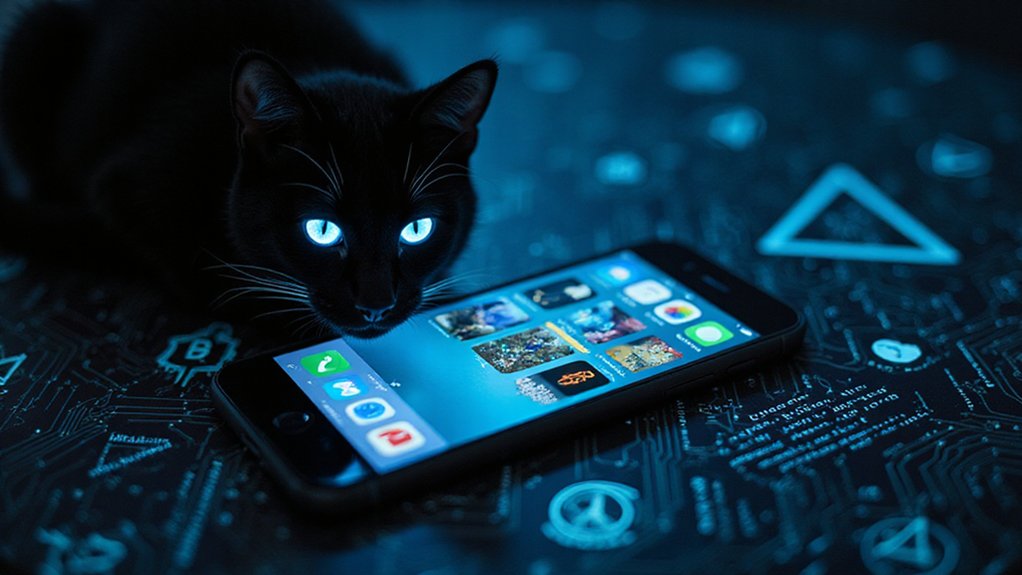Trust is a funny thing. You download an app from Apple or Google’s official stores, thinking you’re safe. Wrong. SparkKitty just proved that even the big tech gatekeepers can’t keep the wolves out.
Official app stores aren’t the digital fortresses you think they are.
This nasty piece of malware infiltrated both the App Store and Google Play, hiding inside crypto trading apps, gambling platforms, and even a fake TikTok clone. One infected app hit over 10,000 downloads before Google yanked it. Nice job, everyone.
The trojan’s main trick? It rifles through your photo gallery like a digital pickpocket. Screenshots of crypto wallet seed phrases, passwords, recovery codes – SparkKitty wants them all. The malware uses optical character recognition to scan images for text. Clever and creepy.
It doesn’t discriminate either. Family photos, memes, whatever – if it’s in your gallery, SparkKitty’s looking at it. The spyware tracks stolen images with a local database, ensuring it doesn’t upload the same photo twice. The malware also sends device information to attackers, giving them a complete profile of their victims.
Southeast Asia and China got hit hardest, but here’s the twist: there’s no geofencing. Anyone who downloaded these apps became a target. The attackers went after regions where crypto is hot, but their net caught fish everywhere.
On Apple’s App Store, SparkKitty masqueraded as “币coin,” a cryptocurrency tracker. Google Play users got burned through a messaging app with crypto features. Both companies got warnings from security researchers. Both removed the apps. Both let thousands of users get compromised first.
This isn’t even the first rodeo. SparkKitty follows SparkCat, using similar tactics. Same playbook, new victims. The malware’s been spreading since early 2024 through official channels and sketchy phishing sites mimicking legitimate stores.
Security firms tagged it with those lovely technical names nobody can pronounce: HEUR:Trojan-Spy.AndroidOS.SparkKitty and its iOS cousin. The code isn’t sophisticated. It doesn’t need to be. When users trust official app stores, simple tricks work just fine.
The whole mess raises uncomfortable questions about app store security. If malware can slip past Apple and Google’s vetting, what else is lurking in those digital shelves? Trust might be a funny thing, but nobody’s laughing when their crypto wallet gets emptied.
References
- https://securelist.com/sparkkitty-ios-android-malware/116793/
- https://www.kaspersky.com/about/press-releases/kaspersky-has-discovered-sparkkitty-a-new-trojan-spy-on-app-store-and-google-play
- https://www.kaspersky.com/blog/ios-android-stealer-sparkkitty/53675/
- https://www.darkreading.com/mobile-security/sparkkitty-swipes-pics-ios-android-devices
- https://www.crowdfundinsider.com/2025/06/243077-malware-on-app-store-and-google-play-reportedly-found-to-steal-cryptocurrency-from-southeast-asia-residents/









